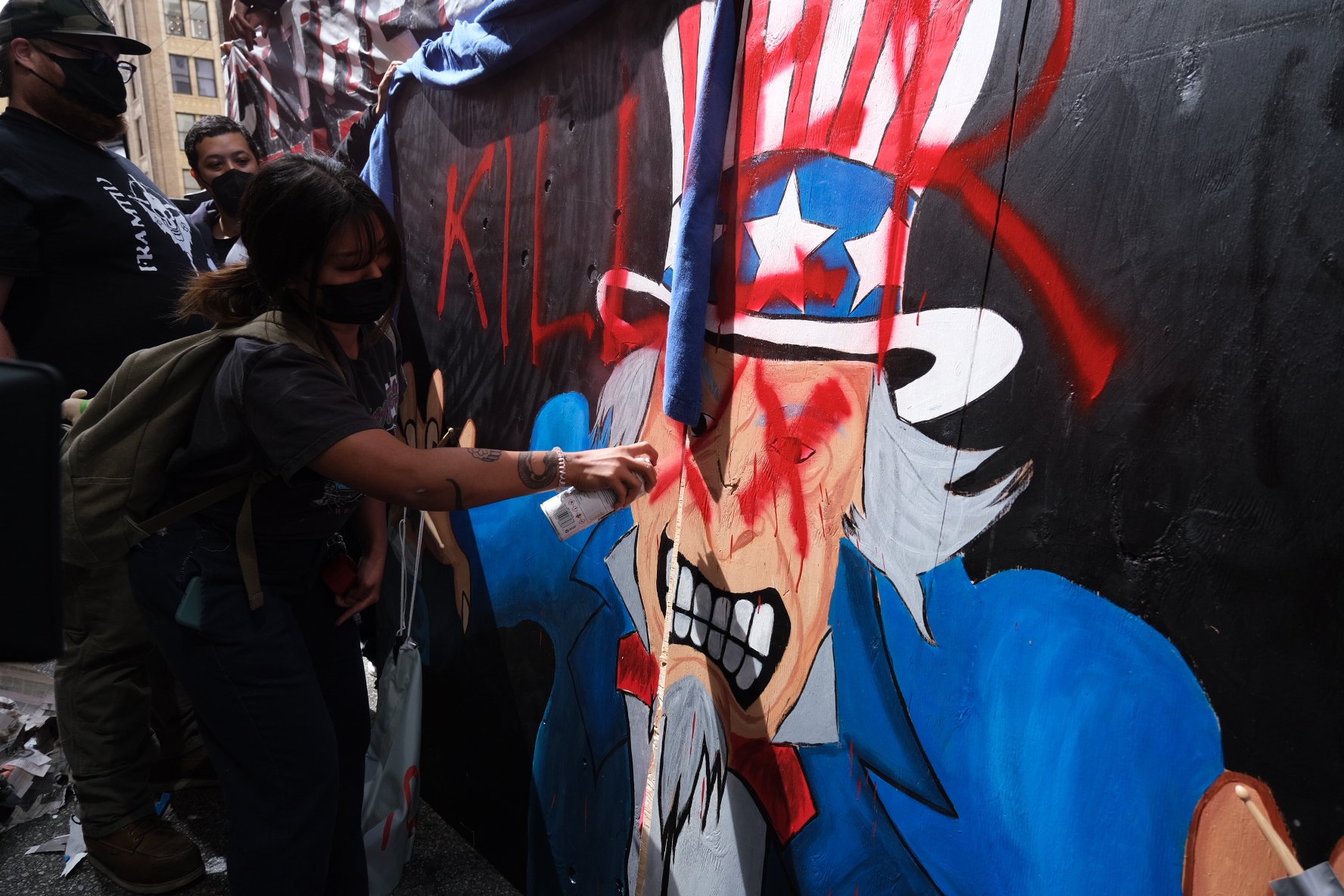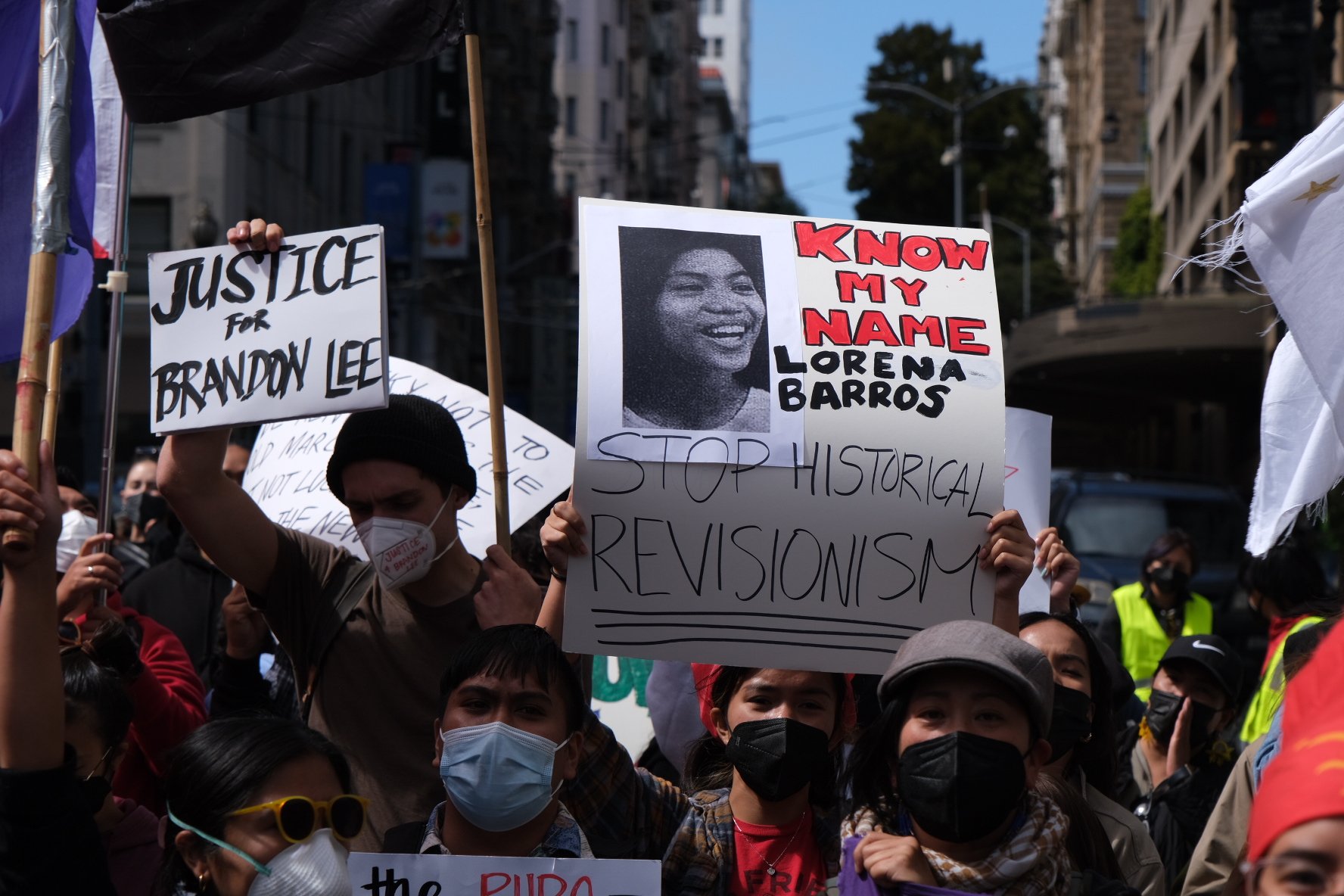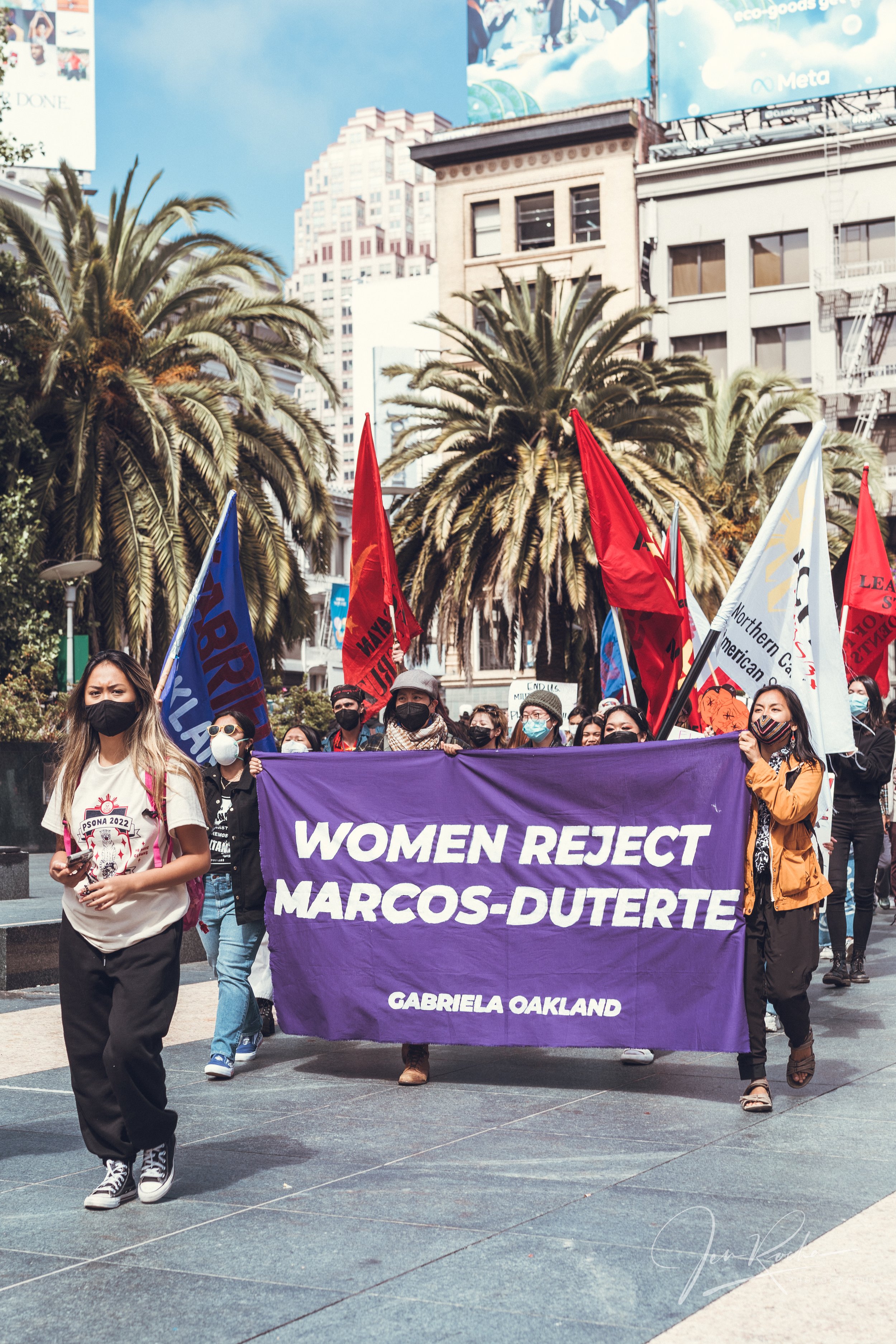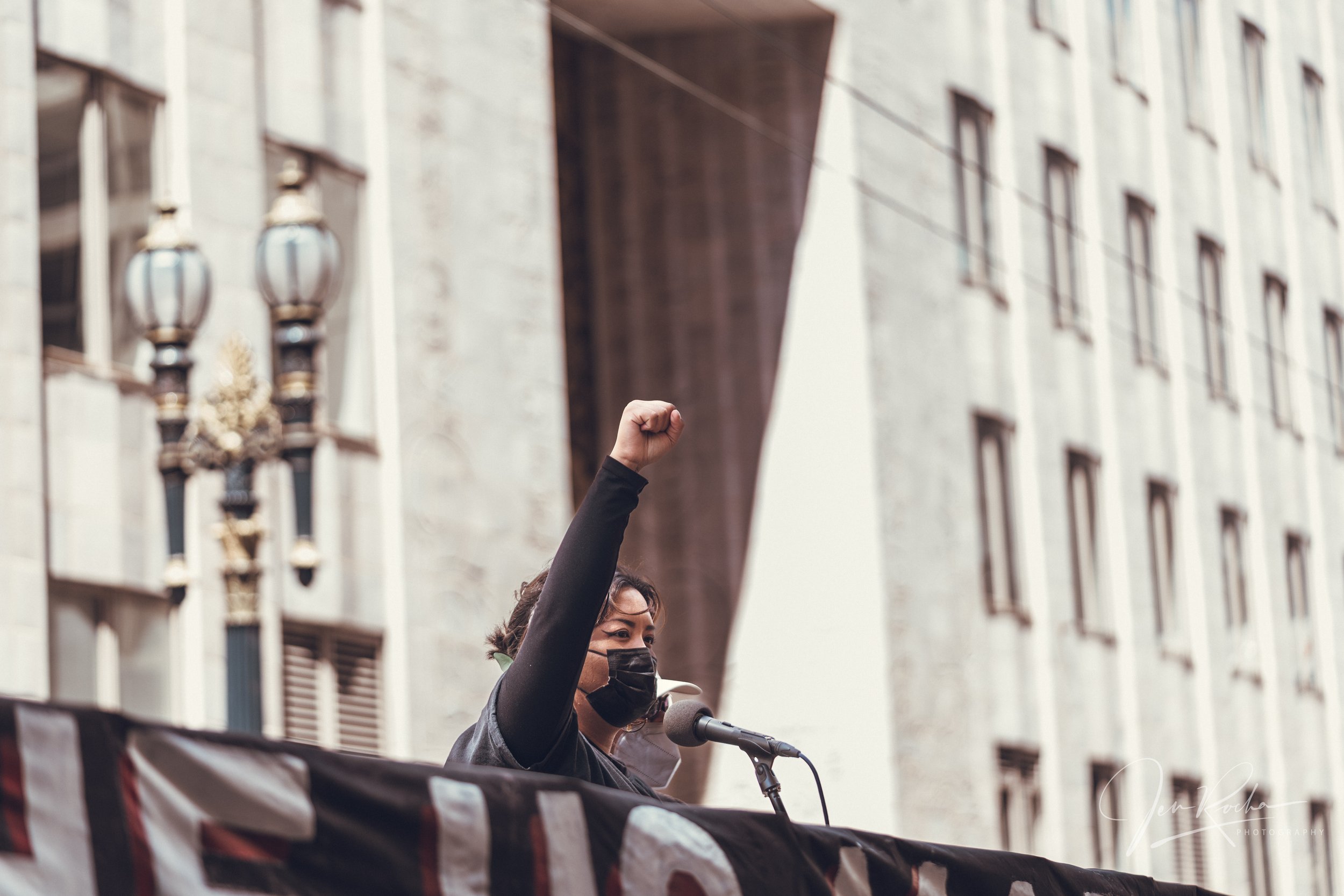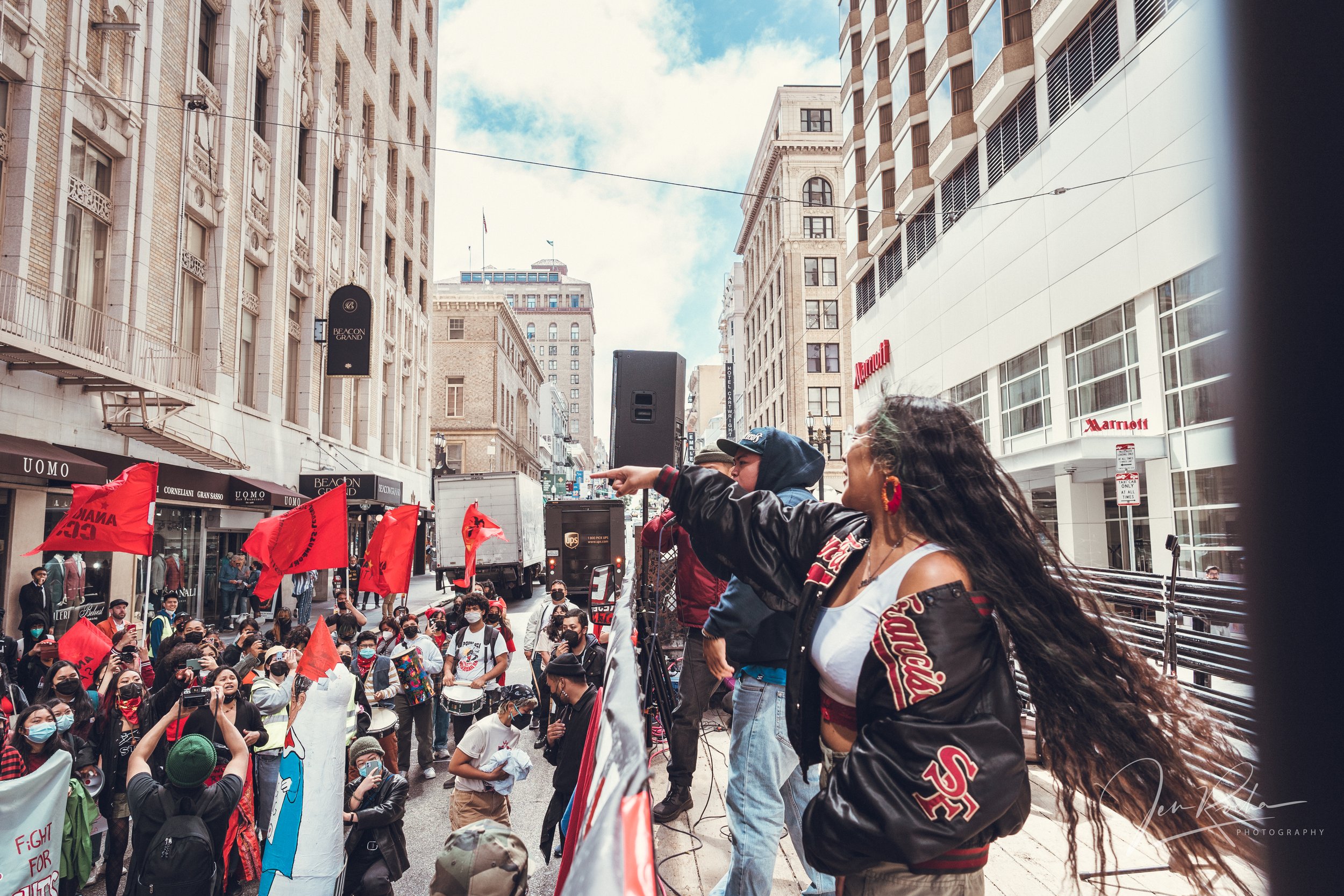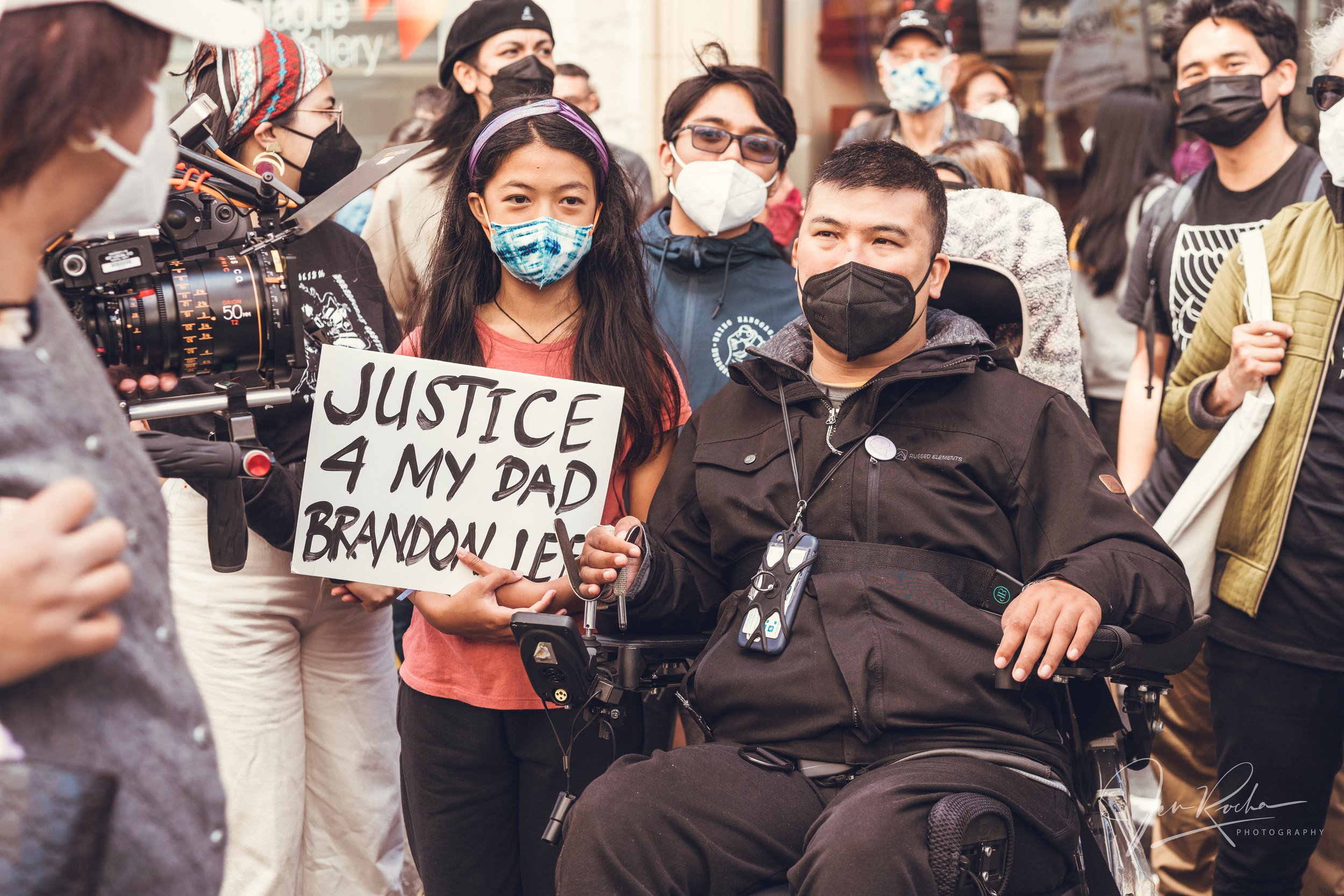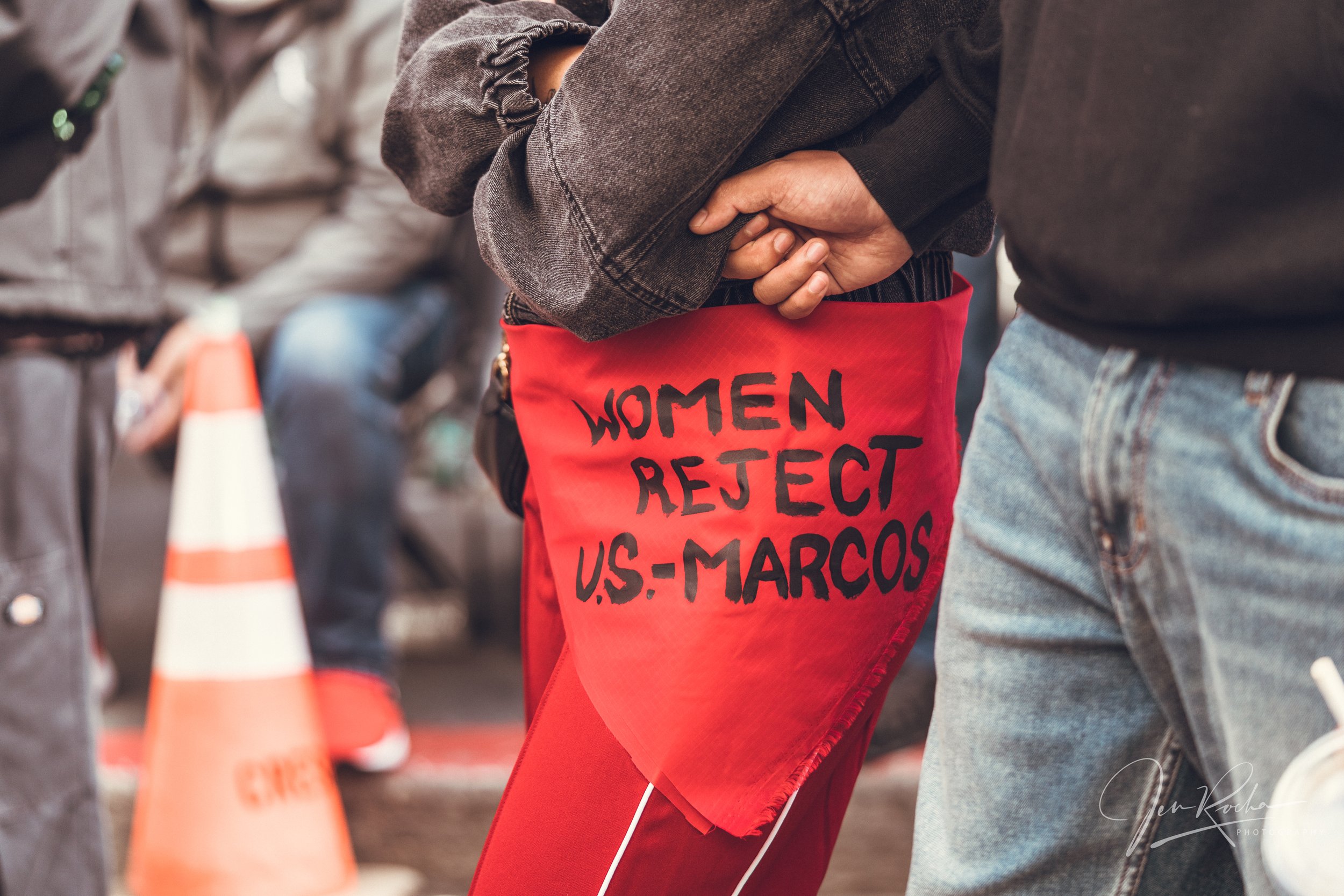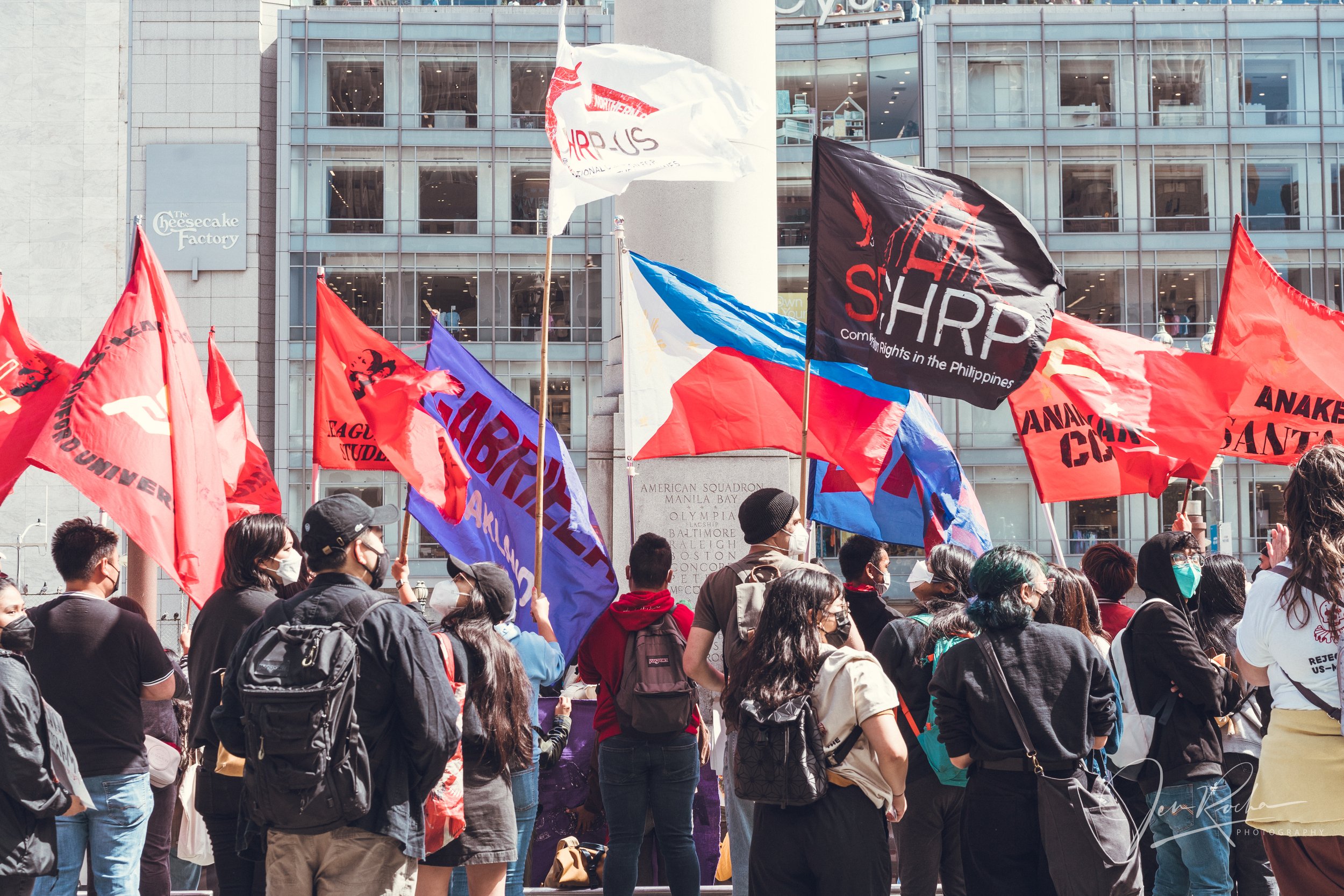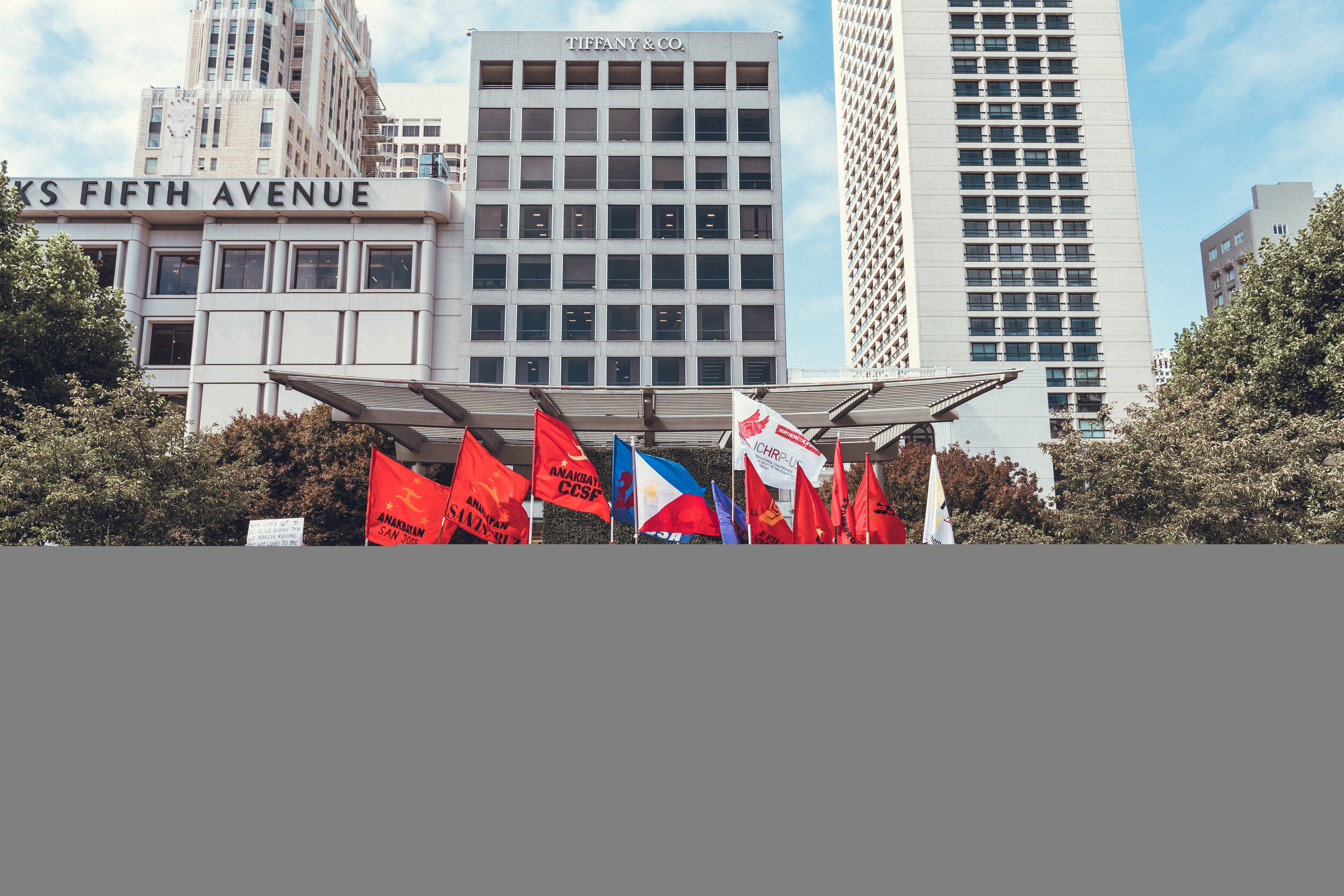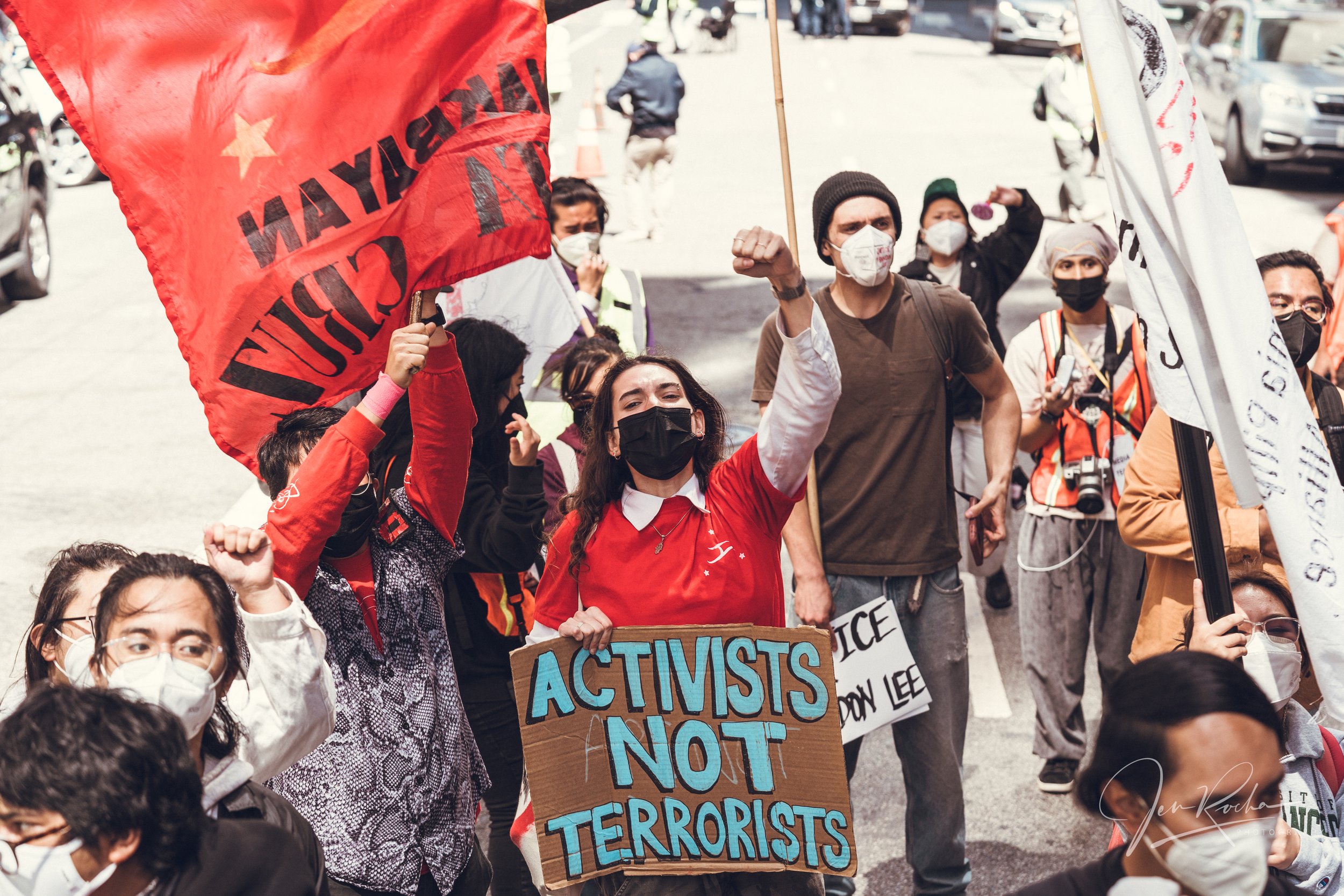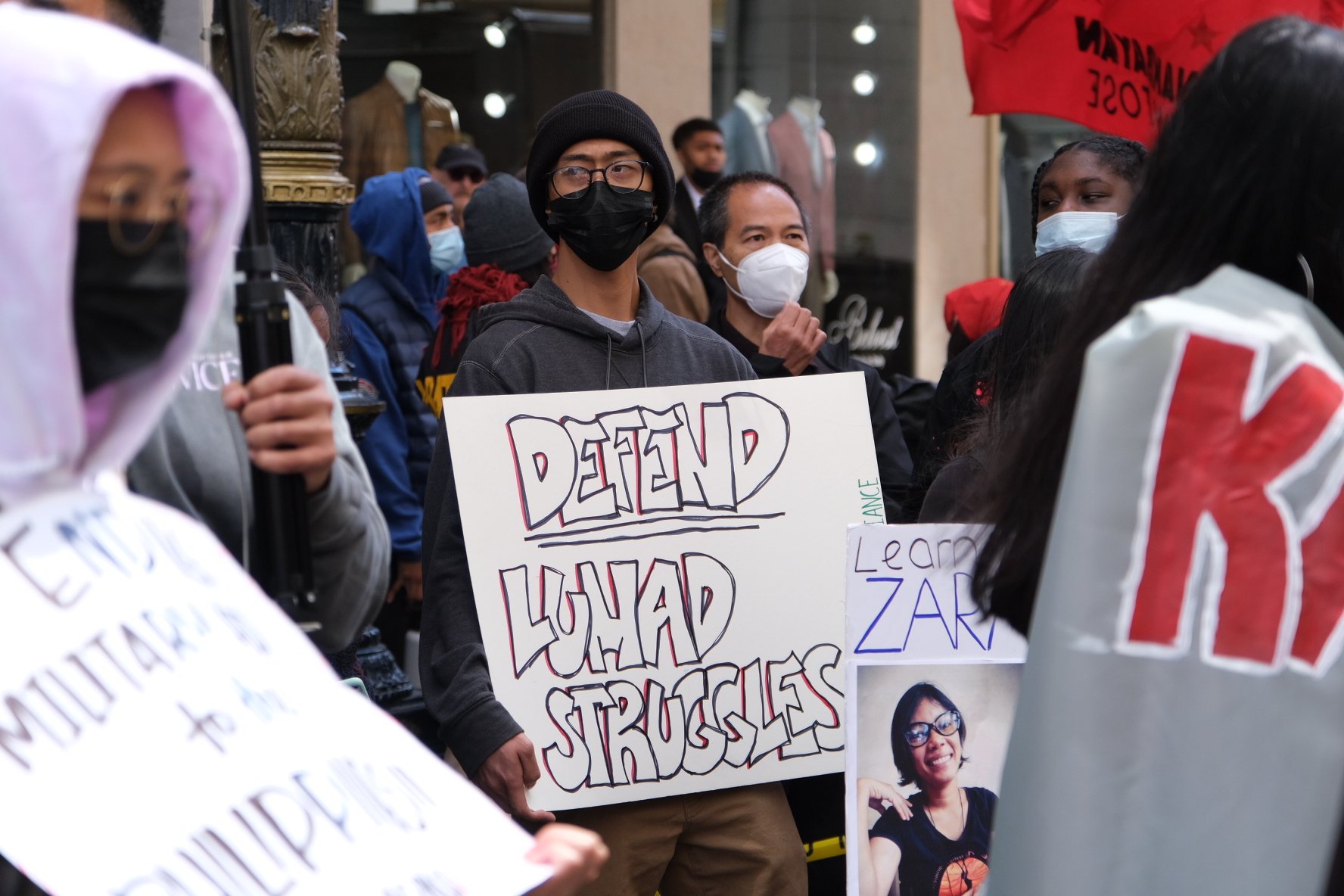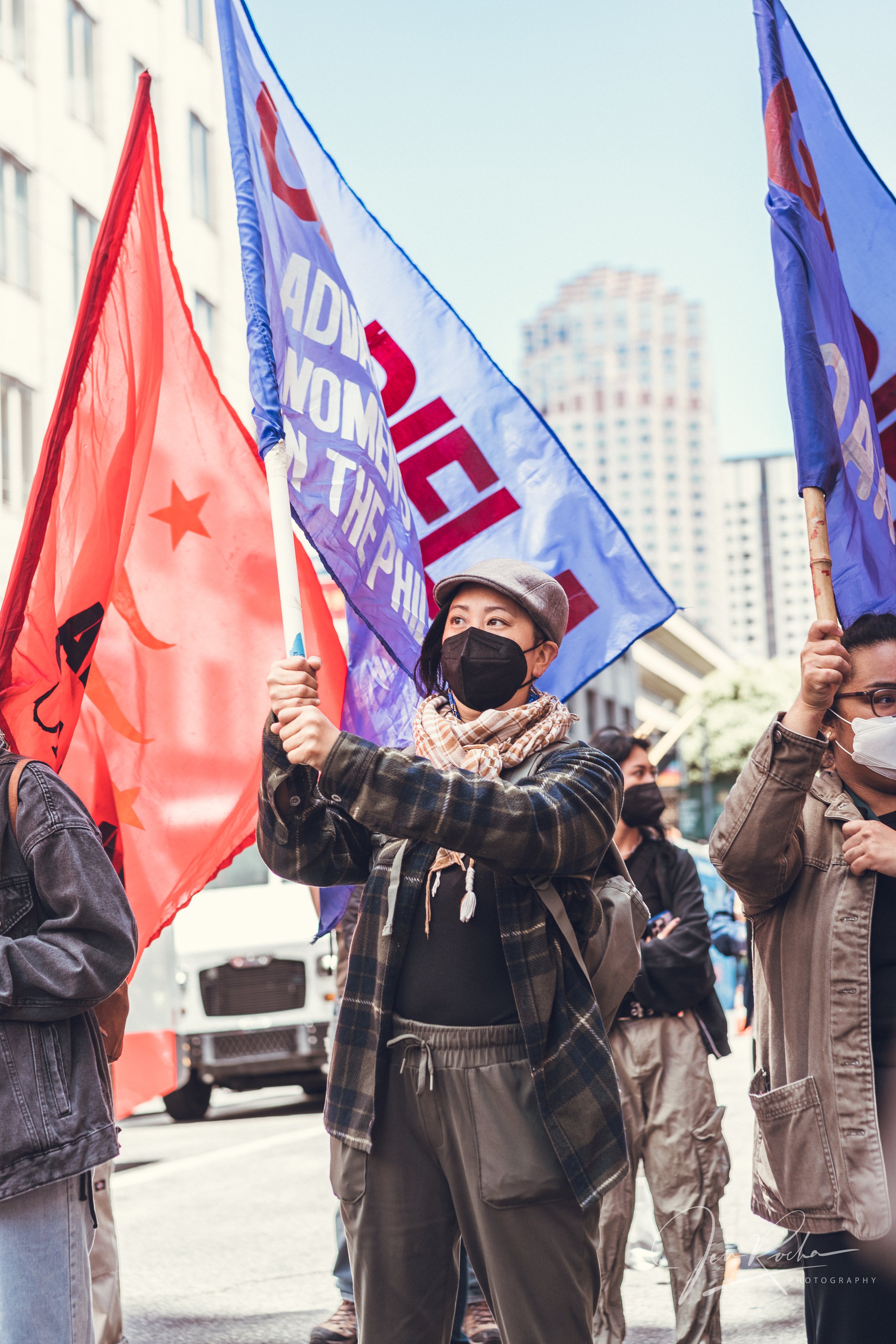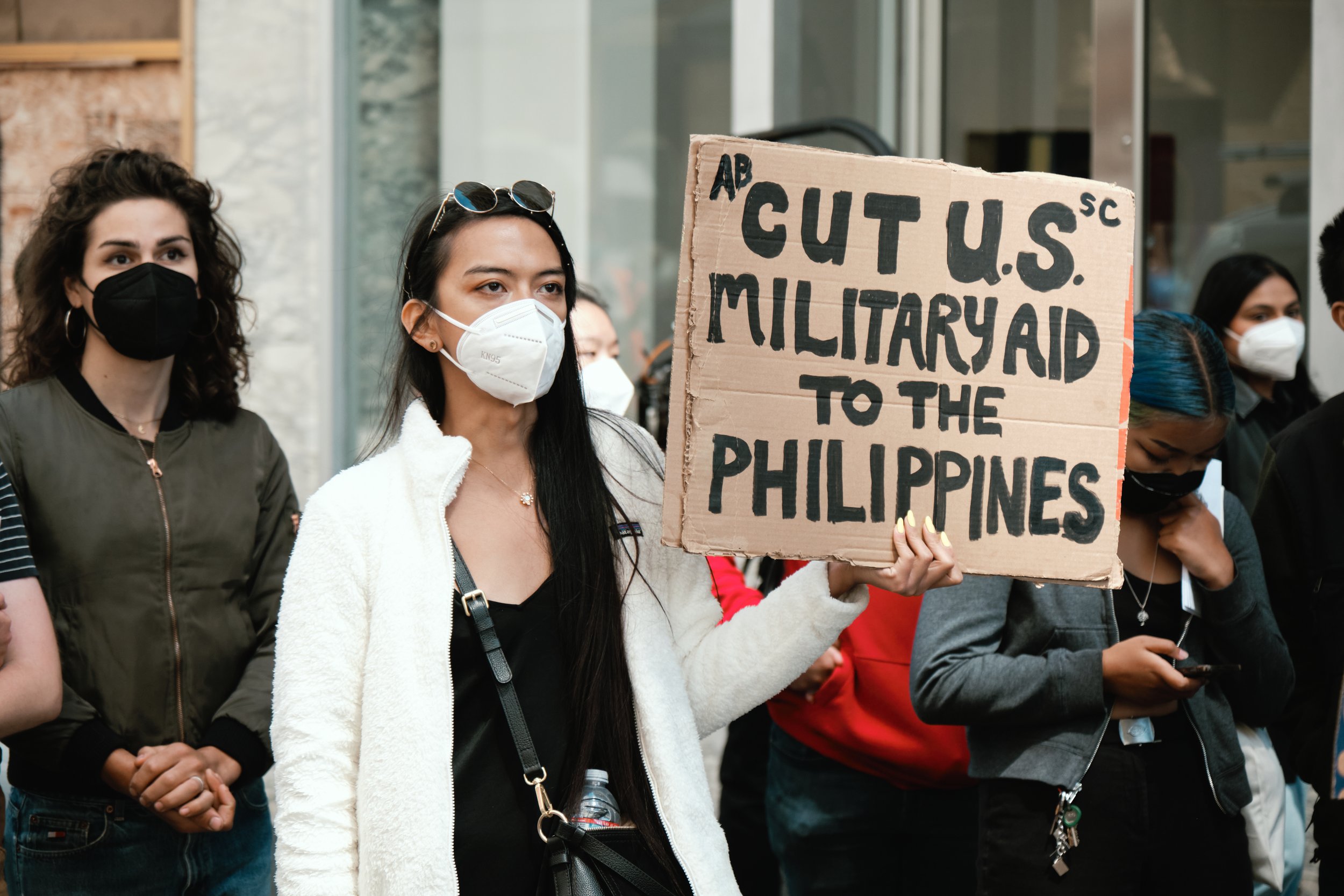Filipinos unite nationwide to reject new Marcos regime in Philippines
Filipinos from all classes and sectors march from Union Square to the Philippine Consulate in San Francisco on July 25, 2022 for a People’s State of the Nation Address, protesting the new Marcos-Duterte administration in the Philippines. Photo: Glenn Mercado
SAN FRANCISCO — Over 400 Filipino workers, students, and youth activists across Northern California shut down Sutter Street on July 25 for a People’s State of the Nation Address to denounce the new Marcos-Duterte regime in the Philippines.
PSONA, the annual demonstration led by Filipino and Filipino-allied organizations across the globe, delivers the genuine concerns and demands of the masses. Among those in attendance included representatives from BAYAN USA, Gabriela Oakland, Malaya Movement, League of Filipino Students, Anakbayan-USA, and the International Coalition for Human Rights in the Philippines (ICHRP).
Ferdinand “Bongbong” Marcos Jr. and Sara Duterte won in a landslide victory, according to national election results from May 2022. But human rights activists say the election outcome is due to a corrupt system of red-tagging, misinformation campaigns, and voter disenfranchisement that upholds political dynasties. In an International Observer Mission (IOM) report conducted by ICHRP, some 1,800 vote counting machines (VCM) across the country were deemed broken or malfunctioned, with only 1,100 VCMs provided as backup. The Philippine government released a statement about the machine malfunctions one hour after the ballot deadline.
President Marcos Jr. is the son of late dictator Ferdinand Marcos Sr., who ushered in an era of political repression, violence, and human rights abuses during his presidency between 1965 and 1986. Marcos Sr. is most infamous for his declaration of Martial Law, which oversaw over 3,240 extrajudicial killings — though rights advocates and martial law survivors say this number is an underestimation. Among those killed were faith leaders, workers, peasant farmers, and students, including youth activist Lorena Barros, who co-founded the Malayang Kilusan ng Bagong Kababaihan (Free Movement of New Women). Barros was captured and killed by soldiers in 1976. She was 28 years old.
Photo: Glenn Mercado
Elected alongside Marcos Jr. was Sara Duterte, daughter of former president Rodrigo Duterte. During his six-year term, Rodrigo Duterte carried out a “war on drugs” that led to the deaths of over 30,000 civilians, journalists, politicians, and activists. His campaign of extrajudicial executions mainly targeted poor and working-class Filipinos like Kian Delos Santos.
Only a student at the time, Delos Santos was killed by Philippine National Police (PNP) near his home in Caloocan, Metro Manila, on August 16, 2017. The three police officers involved — who lied about the circumstances of the 17-year-old’s death — were found guilty one year later. Rodrigo Duterte dismissed the death of Delos Santos and other victims of extrajudicial killings, referring to them as “collateral damage.” Despite international criticism, he continued the anti-narcotics campaign and gave police “permission to kill” suspected drug dealers and users.
Following a march from San Francisco's Union Square, protestors gathered outside the Philippine Consulate General chanting “Makibaka, Huwag Matakot!” Speakers, beginning with Justher Gutierrez of the Malaya Movement, expressed their concerns about Marcos Jr. and Sara Duterte’s potential to further their fathers’ legacies.
Cely Corpuz and Frances Capupus, the respective internal and external chairs of the Northern California Pilipinx American Student Alliance (NCPASA), encouraged students and youth to follow in the footsteps of those who rose against Marcos Sr. during the 1986 People Power Movement. Filipinos from all sectors of society came together on Epifanio de los Santos Avenue, also known as EDSA, demanding an end to Marcos Sr.’s reign of tyranny. Filipinos blocked the avenue for three days before storming the president’s palace on February 25, only to discover that Marcos Sr. had already fled the country with the help of the United States. This historical event symbolized the Filipino people’s resolve and unity to oust a dictator from office.
Malaya and Frankie of Liyang Network — a local to global advocacy network for environmental and human rights defenders in the struggle for land, livelihood, and self-determination — spoke on the repercussions of state-sanctioned violence toward Indigenous people and peasant farmers in the Philippines countryside. In one such case, police arrested over 80 artists, journalists, and farmers of Hacienda Tinang at a land cultivation activity on June 9, just days following the appointment of Marcos Jr.
Karla Liwanag from the GABRIELA National Alliance of Women called on community members to protect queer, femme, non-binary, and trans Filipinos who have faced violence due to their commitment to the movement against fascism in the United States and the Philippines. Multiple women activists have disappeared during the first month of the Marcos Jr. presidency, including Loi Magbanua, a 57-year-old queer labor organizer.
“They are using the same tactics that were used during the tyrannical rule of Marcos Sr. But we’re also seeing a trend here. The regime’s attempt to silence women activists who have lived through Martial Law,” Liwanag said.
Brandon Lee is a Chinese American activist and community journalist from San Francisco. He has lived and worked in the Philippines since 2010, advocating for the defense and protection of Indigenous land and rights in the Cordilleras. In August 2019, Lee was shot in an assassination attempt by the Philippine government and was airlifted back to the Bay Area two months later.
“It’s sad to say that I am one of the lucky few who made it out alive — where 30,000 were killed under the drug war, and countless hundreds of political activists lost their lives,” Lee said. “What the Philippines government, military, and police have done is ruin families.”
Lee’s daughter, Jesse, shared her reflections after having witnessed the attempted assassination at a young age.
“When our ancestors planted the first seeds of our family trees, they wouldn’t want it to be like this. They wouldn’t want history to keep on repeating itself. This community, this forest, is being poisoned and corrupted with lies. This poison has been spreading through the soil for too long. My dad is being ignored when all we want is for [the Philippine government] to say sorry and tell the truth,” Jesse said.
Lee explained that disinformation and the continuing attacks on activists have only prolonged justice for his case. He has requested a sitdown meeting with the Philippine Consul General to review the status of the investigation on the attempted assassination but has repeatedly been denied.
In 2020, the United States approved a $2 billion arms deal with the Philippines that included weaponry such as attack helicopters, missiles, and rocket launchers, all while COVID-19 was wreaking havoc across both countries. The Philippines had the second highest number of COVID-19 cases in Southeast Asia in 2021. According to PSONA speakers, the Philippine government chose to prioritize its military over creating health-oriented solutions to the ongoing pandemic.
Photo: Glenn Mercado
Lisa Rofel from Jewish Voices for Peace voiced her support for the Philippine Human Rights Act (PHRA), which currently has 33 co-sponsors. The PHRA would prohibit U.S. federal funds from assisting the Philippine police or military until the country investigates and prosecutes members of its forces who have committed human rights violations. The Act would also require the Philippine government to withdraw its military from domestic policing activities and establish safeguards to protect the rights and welfare of journalists and civil society activists.
Voulette of the Palestinian Youth Movement joined Rofel in highlighting the parallels between two U.S.-backed administrations: former Philippines President Duterte and former Prime Minister Benjamin Netanyahu of Israel. Voulette also pointed to the joint military operations between the PNP and Israeli Defense Force (IDF). Israel exports weapons and military training to the Philippines, equipping the PNP with violent tactics that IDF soldiers use to repress the Palestinian people.
Tita Leila, a caregiver and member of the Pilipino Association of Workers and Immigrants, shared her insight as an overseas Filipino worker. Leila is concerned for her family in the Philippines amidst worsening living conditions and rising costs of basic needs under the new Marcos administration.
Abbey Irodistan, representing the Filipino alliance BAYAN Northern California, ended the lineup of speakers emphasizing the need to continue grassroots organizing alongside the Filipino people in the Philippines.
“Even here in the belly of the beast, we will not back down, we will not be quiet, and we will not go gently. We will continue to immerse ourselves amongst the people and learn from them their struggles and solutions,” Irodistan said. “Unlike Marcos, who speaks vaguely and sets goals with no plans to achieve them, our organizations do the work of understanding people’s issues.”
Photos: Glenn Mercado and Jen Rocha



